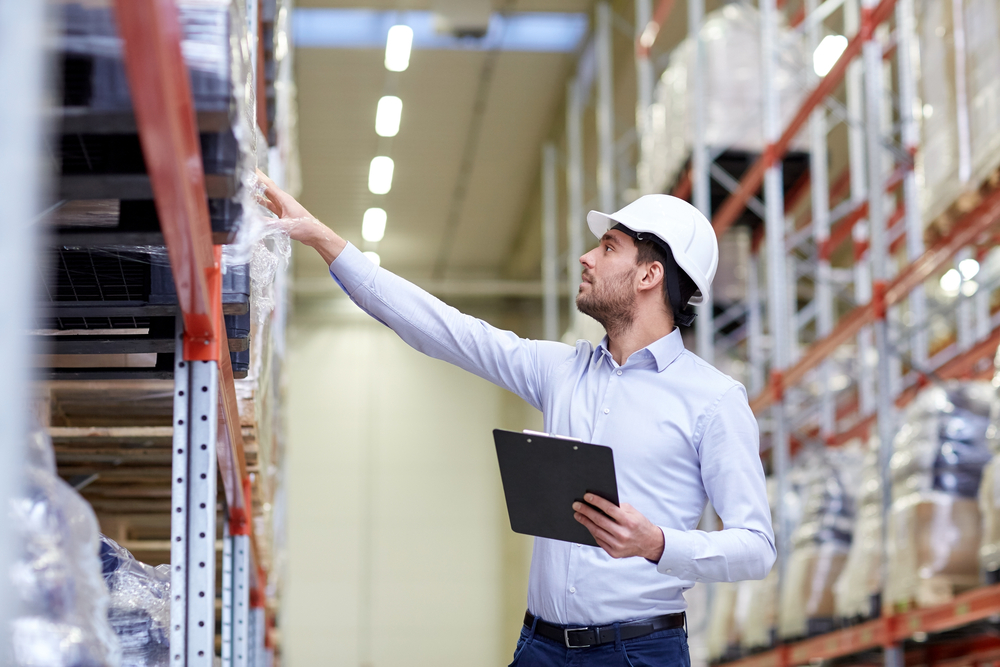
As a warehouse manager, you have a lot of operational decisions to make. You want your business to run as efficiently and safely as possible, but you also want to maximise profits.
To help keep the most vital business operations at the front of your mind, we’ve created this forklift buying guide for you to quickly and easily refer back to whenever it's needed.
As well as assessing your business’ material handling needs regularly, you also need to consider the bigger picture. When it comes to a big decision like buying your next forklift, there are a variety of areas you’ll likely need to factor in.
With the help of this cheat sheet, you’ll be able to:
- Assess your overall business requirements
- Understand how to achieve buy-in internally
- Identify your operational objectives
- Determine any licensing and driver requirements
Read on so you can start applying the tips in our warehouse managers’ cheat sheet to your own business today.
Assessing your business requirements
Before buying your next forklift, it’s important to do a stock-take. Start by considering:
- What equipment you currently use
- Your warehouse space
- Truck Availability
- Your Throughput
This will help ensure that any solutions you do invest in will be cost-effective for your business.
You should also take the time to assess your business goals and objectives – both short-term and long-term. For example, is your revenue target significantly higher this year compared to last? Are you planning to expand your warehouse space in the next five to ten years? The answer to these questions could impact the solutions you choose today.
If you’re planning to make the switch from ICE trucks to EVs in the next few years, you may need to consider how frequent charging breaks will affect your output.
Here are three key questions to ask your local dealer on this topic when it’s time to add a new forklift to your fleet.
Key questions to ask your local dealer
- Where can I reduce costs in my operation to maximise business profits?
- Which type of forklift finance best suits my business needs and budget?
- How can I future-proof my operations in a way that’s cost-effective for my business?
Related Read: Looking Ahead: 3 Future Material Handling Challenges You Need to Prepare For
A team effort: achieving internal buy-in
Once you’ve assessed your business goals and objectives and identified what solutions work best for your business, you’ll need to think about achieving buy-in internally.
So what should form the basis of your conversation? Factors to consider include:
- Space vs cost
- Financial Implications of having a variety of equipment in your warehouse
- Cost of Operation
- Potential alternative methods for storage (such as double deep)
- Product availability (both now and in the future)
- Speed and throughput
- Picking availability
Being able to highlight the benefits of your proposed investment (think improved truck availability, greater throughput, cost savings, and increased profits) will make the process of buying your next forklift much simpler.
Key questions to ask your local dealer
- What is the cost breakdown of my current truck vs. the model you recommend?
- How will X truck help me cut costs, increase efficiencies, and maximise profits?
- How will increasing my forklift fleet size affect my business’ profitability?
Identifying your operational objectives
Perhaps the most important step of all is understanding and identifying your operational needs and objectives.
These will depend on a number of factors, including:
- Your current operation's application and shift patterns
- How you see these evolving in future
- The number of operators in your warehouse at any one time
- Your current vs projected output
At TCM, our dealer network is on hand and happy to help you identify your operational objectives, both now and in the future. Here are some key questions to ask your local dealer, who will effectively become an extension of your team:
Key questions to ask your local dealer
- My operation runs 24/7 — what forklift solution do you recommend?
- My operation has clear shift patterns — which forklift solution do you recommend?
- My application is heavy-duty. Which truck is best for me?
Related Read: 3 Ways to Balance Forklift Operator Comfort and Efficiency for Heavy-Duty Applications
Licensing and driver requirements explained
When purchasing your next forklift, it could be worth reviewing any licensing and driver requirements you will need moving forward. For example, your business may be required to run additional driver training for operators, or renew training certifications for others.
Keeping on top of your licensing and driver requirements will help ensure your operation is able to remain safe, efficient, and compliant with regulations.
Ideally, you’ll want to conduct regular audits to ensure each operator receives the right level of training for the truck model or models they’re operating.
And finally, if you’re still unsure of your driver requirements, check out the key questions to ask your local dealer below.
Key questions to ask your local dealer
- What type of driver training do my business’ operators need?
- What type of driving license is required to operate a forklift?
- How often do my business’ operators need to retrain?
Related Read: Classifications of Material Handling Equipment (And How to Choose It)
Bringing it all together
As we’ve highlighted in this cheatsheet, buying your next forklift isn’t simply a question of what you think you need.
If you’re still unsure, then get in touch with our dealer network. Every dealer in our network is specifically trained to help you determine the best forklift solution for your business, both now and in the future — taking into account your operation, application, business goals, and budget.
To discover how to optimise your current operation and identify your ideal forklift solution, click the button below to speak to your local dealer today.